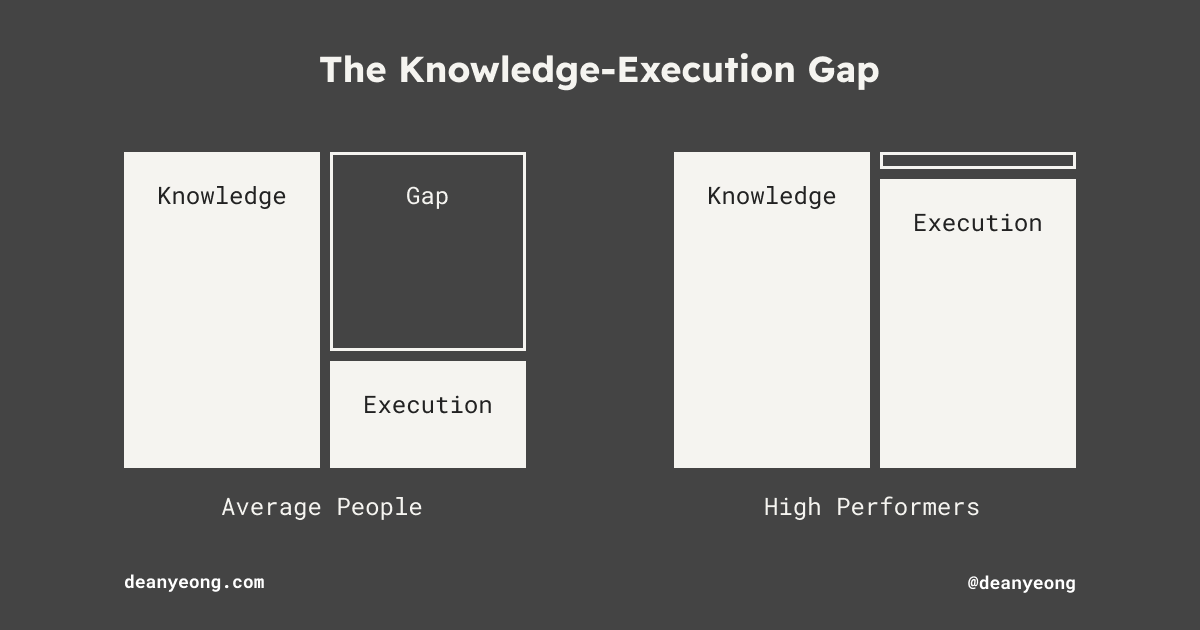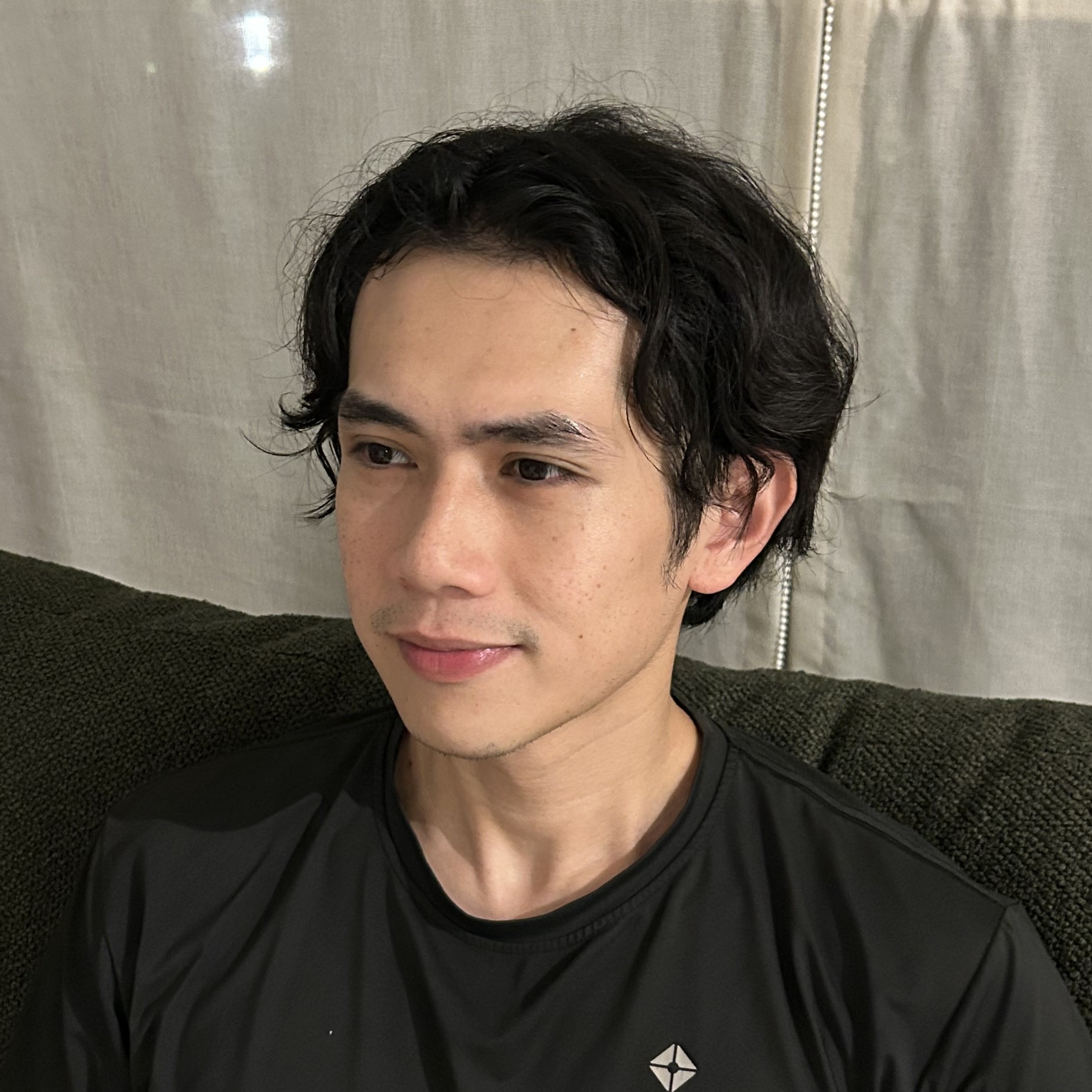Closing The Knowledge-Execution Gap
Striking the balance between how much you know and how much you do
In Work Less episode three, I talked about people who hop from one latest productivity app to the next—hoping to find the perfect tool instead of getting the work done. These people are more like hammer collectors instead of carpenters.
Similarly, some people consume all kinds of information, feel good, but do nothing about what they have learned.
There is no shortage of smart professionals who read all the business books but never started a business—gym bros who know all kinds of bodybuilding moves and diets but never get in shape.
This brings me to what I call the knowledge-execution gap. It is the space between how much you know and how much you do or practice.
What you know v.s. what you do
In today's environment with never-ending streams of information, we acquire all kinds of knowledge and think we're good. But the truth is that we will never get good until we practice what we know—again and again.
You can also think of them as two different skillsets, two muscles:
- The knowledge-acquiring muscle
- the execution muscle
When you consistently acquire more knowledge—reading more books, attending more seminars, taking more online courses—your knowledge-acquiring muscle can't help but to get stronger. However, without implementing what you've learned, your execution muscle stays the same or, worse, gets weaker over time.
The imbalance between two of these skillsets creates an environment and condition that pulls you toward acquiring even more knowledge because it's what you're good at. And steer away from the actual execution since it will force you to face potential failures. That further widens the knowledge-execution gap.
The gap is where ego and self-doubt creep in. You want to be right because you know you're right. It's ego. The problem is that you're not certain if you're right because you never do it.
How to close the knowledge-execution gap
The solution is to make the paradigm shift and start small.

Reframe your questions from "What is the one thing I can learn today?" to "What is the one thing I can do today?" and start from there.
- Instead of picking up the next business book, sell your products and talk to your customers.
- Instead of watching the next motivational fitness video, put on your training shoes and hit the gym right now.
- Instead of reading the next article on how to get into a relationship, go out and meet some people.
The next strategy is to determine the type of information you are acquiring before reading the next book or joining the next course. Is it just-in-case information or just-in-time information?
Just-in-case information is the thing to know just in case something happens. On the other hand, just-in-time information is the thing to know just in time for you to utilize it. It's OK to learn about just-in-case information, but do you really need it now? Or should you take what you've learned two months ago and start working on your business, finances, or relationships?
Leaning toward just-in-time information also means that you're learning by doing. After all, it's a better and more effective way to learn something new.
Take starting this personal podcast, for example. Instead of acquiring all the ins and out of starting a podcast, I figure out what I need to do next, search for it online, read one to two blog posts, and do it right away.
Bias toward action
Back to the knowledge-execution gap, the opposite is not ideal either, when the execution muscle is strong and the knowledge-acquiring muscle is weak. We become careless, act mindlessly, and make more mistakes that way. The key is to strike a balance between acquiring more knowledge and putting what you know to work.
However, to take action quickly doesn't mean to move without thinking. You can always use mental models to avoid mistakes, implement decision-making frameworks to maximize the probability of a positive outcome, and set up systems to collect feedback.
All of these are actions. And any action is better than doing nothing at all.


